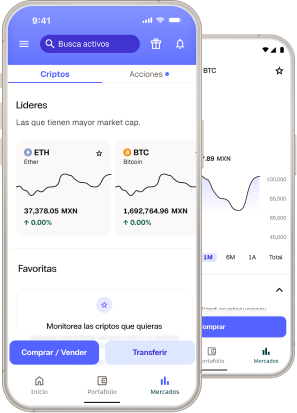Proof of Something
Proof of Funds, Proof of Reserves, Proof of Solvency? There’s a good chance you’ve seen these concepts floating around in your social media and news feeds over the last 2 weeks.
But, do you know what any of these terms stand for? Do you know whether any of these terms actually ‘prove’ that a crypto exchange, a bank, or any other company or institution is in good financial shape? Let’s dive deeper to help you understand what these terms mean for the security of your crypto.
Why should we care about these proofs?
First, let’s start with why you should care about this. Establishing trust and transparency between companies and customers takes time, and while more exchanges evolve in this nascent industry, there are a few crucial considerations you need to look at when defining where to put your assets.
For example, banks are regulated entities, which means they must comply with a set of laws and report how many assets they have on a periodic basis, so that customer funds are not jeopardized. This also applies to regulated crypto companies.
Take Bitso, for instance. In 2019 we became one of the few companies in the world and the first in Latin America to obtain a crypto license for custody and trading.
Today we have an end-to-end regulated operation where we hold different licenses in each of the jurisdictions where we serve customers. All of our licenses mean constant scrutiny by different regulators and other third parties around the world in the form of audits.
Few countries around the world have crypto regulations. This makes exchanges proactively acquire licenses in the countries that do have them.
However, being regulated is not enough; complying and being audited are also necessary. So, the first question you must ask yourself is, how is your exchange regulated and audited?
Understanding concepts
Now that you’ve checked whether your exchange is regulated and audited let’s move on to the second part. First, let’s understand what assets, liabilities, and solvency refer to.
- Assets refer to the amount of crypto held in all the wallets Bitso owns keys to.
- Liabilities refer to the total sum of Bitso‘s customer balances.
For Bitso and any other exchange to be solvent, assets must be greater than liabilities. In other words, being solvent means that, given current assets and liabilities, if customers were to withdraw 100% of their funds at the same time, they would be able to do so.
In recent days we’ve seen exchanges releasing lists of wallets to prove their solvency. This has been referred to as proof of funds or proof of reserves. This is problematic for a number of reasons:
- This doesn’t prove ownership of the keys required to move coins off of these wallets
- There is no reassurance that the coins in these wallets are sufficient to cover all the liabilities in the exchange
The proof that matters for an exchange to be solvent is the one that shows that the total reserve balance (the coins it holds the keys to) is sufficient to cover the total liabilities (the total amount of customer deposits).
Now, you’ve probably also heard the term “Merkle tree” being thrown around. A simple way to prove solvency would be for an exchange to publish all the coins it holds the keys to together with the total amount of customer deposits.
This will help each customer understand if their balance is accounted for. This, however, would break privacy. That’s where the Merkle tree comes in.
The Merkle tree is a structure that allows for secure verification of content. It is a technique used to calculate and carry out a proof of reserve. At Bitso, we’re already working on our own. You can read more about these concepts here.
OK, now that you’ve understood the concepts above, let’s try to understand what mechanism an exchange can use to show ‘The Proof that Matters‘.
The Proof that Matters
Although having an exchange show their “assets” seems like an appealing way to showcase transparency, it does not show the whole picture. As long as customers do not know the amount of liabilities, they can’t know whether a company is solvent or not.
For this reason, solvency is the only proof that matters. Here it is key to highlight that assets and liabilities must be compared per currency. If they aren’t, then true solvency cannot be met, as each currency’s price can change at any given time.
This is something we are required to do at Bitso due to the crypto custody license we hold. Assets in Bitso are backed 1:1. We are a full global reserve platform, which means that we hold assets for each of our customer’s deposits and we don’t touch these funds without their explicit permission.
Now you’re probably asking what Bitso is doing to show The Proof that Matters. We’re working on several strategies to provide transparency to our customers, but some of these actions take time because we don’t want to do it fast, we want to do it right.
Here are 5 actions you can expect from us:
- A Merkle tree and solvency report
- We’re creating a Merkle tree for you to validate your balance in the same snapshot that is used to show our solvency. Our very talented engineering team is working hard to have this ready to access within a month.
- Third-Party Audit
- We’re seeking an external party to partner with that will validate our liabilities, assets, and vouch for our solvency. This will provide you with reassurance that what we’re saying is true. We expect to be able to complete this early next year.
- Industry working group
- We’ve reached out to many reputable companies and renowned leaders in our industry to work together to build a standard. We’ll publish more information on how you can get involved soon.
- Zero Knowledge (“ZK”) Proof
- A zero-knowledge proof is a cryptographic proof where one party can prove to another party that something is true without revealing any information apart from the fact that this specific statement is true. We strongly believe in replacing trust-based processes with “trustless” cryptographic proofs. We shouldn’t depend on legacy methods from the traditional financial system to hold crypto companies accountable, which is why we believe ZK proofs will become the industry standard. ZK proofs will allow solvency to be shared without exposing any confidential information or requiring a third party to audit and make trust-laden attestations.
- We’ll continue working with regulators to create a framework that protects customers above all
- As crypto continues to be an evolving technology, we will stay committed to sharing industry best practices and creating policy frameworks that create a more transparent, secure, and accountable industry.
- As crypto continues to be an evolving technology, we will stay committed to sharing industry best practices and creating policy frameworks that create a more transparent, secure, and accountable industry.
The future of Proof of Solvency
For us, this is just the beginning. The amazing thing about crypto is that it promises a future that eliminates the need for a third party to guarantee trust. Our vision of the future rests on being able to let any person prove that their own funds are properly held without having to refer to a third party.
A zero-knowledge proof can help us do just that. We’re eager for an industry standard that keeps all participants fully accountable to their customers at all times, and in Bitso, you can be sure that we’ll work tirelessly to make this happen.
Find more information here: https://bitso.com/safety

